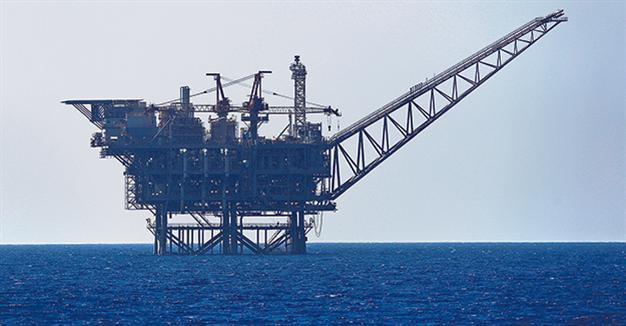Israeli gas may reach Turkey in three years, Israeli energy minister says
Merve Erdil - ISTANBUL

REUTERS photo
As Turkey and Israel move to restore their relationship after six years of strained ties, both sides are looking forward to the opportunity to transfer Israel’s natural gas to Turkey, a move which could happen as early as 2019, according to Israeli Energy and Natural Resources Minister Yuval Steinitz.
“I think that it is quite likely that Israel will export natural gas to Turkey. And maybe also in the future we will export natural gas to Europe through the Turkish gas transmission system that is now under construction. I think it is good for Turkey. It is good for Israel,” Steinitz told daily Hürriyet over the phone on June 29.
Turkey and Israel reached an agreement earlier this week that will allow the two countries to restore full diplomatic relations, which broke off in 2010 after Israeli forces raided a convoy of aid ships attempting to break the blockade of Gaza, killing nine Turkish activists.
Energy will be an important area of cooperation between the two countries, with Turkey being the most feasible route for Israel’s future natural gas exports.
“The deal, if there will be such a deal, it will be a deal between companies from both sides,” Steinitz said, adding, “Israeli or American companies like Nobel and Turkish companies.”
“The two countries however will have to agree to give some kind of consent to such a deal, and agree to the construction of a gas pipeline from Israeli economic water to Turkey,” he noted.
Israel can currently export 350 billion cubic meters (bcm) of gas, the minister said, adding there was potential for more production.
“According to the estimates, in a few years’ time probably we will be able to export up to 2,500 bcm. This is a lot of gas,” Steinitz said.
“And if this will take place, it is just an estimate [but] this is also the estimate of [the] U.S. Department of Energy that we will discover in the next few years much more gas than what was discovered so far. If this happens Israel will have to export a lot of gas to Western Europe. Then Israel can export gas through Turkey through the TANAP pipeline, a very large pipeline that is going be built, from [the] Caspian Sea to Turkey through Europe,” he said.
Israel has three options to export gas to Europe, according to Steinitz, who outlined each of them.
“[The] first one is the LNG [liquefied natural gas] facilities in [the] Egyptian delta. In Egypt there are two LNG facilities. One of the ideas there was already some kind of MoU [memorandum of understanding] between the companies in Egypt that gas from Israel will move to [the] Egyptian delta, and in those LNG facilities will be liquefied and shipped with ships from Egypt to Europe. This is one possibility, but it is quite expensive.
“Another possibility is to build a pipeline from the Israeli economic water through Cyprus to Greece, a very long underwater pipeline. This is possible but it is a very big project and it might take much longer. It might take five to eight years to build such a very long undersea pipeline. Technically it is possible but it is quite expensive and quite long.
“The third possibility to export gas to Europe is through Turkey. And there are two possibilities here. One possibility is that Israel will export gas to Turkey. Currently it is a lot of gas, but in the future it might be much more, almost actually unlimited de facto if we find the additional gas fields. And this is very likely. This is highly probable. And the other possibility, if the two countries will agree, is that gas from Israel and [the] Eastern Mediterranean basin in general will be transported through Turkey to Europe. And then Istanbul can become an international energy hub,” he said.
The minister noted the cost estimates for a pipeline to Turkey was “about $2 billion or a little bit less,” adding it would be financed by the private sector with the consent of both Turkey and Israel.
“It will be [financed] by [the] business private sector on both sides. If everything will go well, I think… in 2019 Israeli gas from [the] Leviathan [gas field off the coast of Israel] can be exported to Turkey. It might be as early as 2019.
“But of course you know once Leviathan will begin to produce natural gas, it is possible by this timeline to build a pipeline not just from Leviathan to Israel, but also from Leviathan to Turkey. In the best case scenario we are speaking about approximately three years. Of course it might take longer, it depends. But actually technically, if everything goes well, in three years from now Israeli natural gas can already be exported to Turkey,” Steinitz said.
